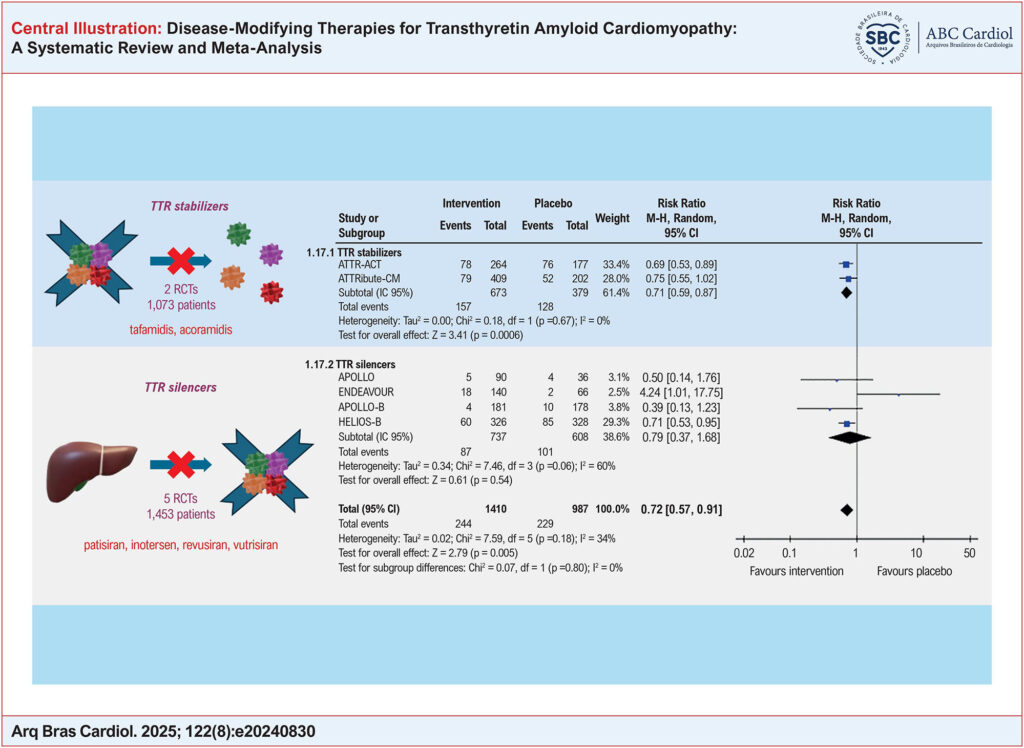Arq. Bras. Cardiol. 2025; 122(8): e20240830
Disease-Modifying Therapies for Transthyretin Amyloid Cardiomyopathy: A Systematic Review and Meta-Analysis
This Original Article is referred by the Short Editorial "To Silence or to Stabilize: That is the Question".
Abstract
Background:
Transthyretin (TTR) amyloid cardiomyopathy (ATTR-CM) is the most common form of restrictive cardiomyopathy. Emerging pharmacological therapies aim to alter the natural history of disease and delay its advancement. However, data directly comparing the efficacy of different drug classes versus placebo remain limited.
Objectives:
This systematic review assessed the efficacy of TTR stabilizers and silencers compared with placebo on all-cause mortality, hospitalizations, functional outcomes, and serum levels of the biomarker NT-proBNP in patients with ATTR-CM.
Methods:
A comprehensive search of PubMed, Embase, and Cochrane databases was conducted for randomized controlled trials (RCTs) published through April 2025. Eligible studies compared patisiran, tafamidis, inotersen, revusiran, acoramidis, or vutrisiran to placebo in patients with ATTR-CM. Analyses were stratified by drug class, and statistical significance was set at p<0.05.
Results:
Seven RCTs involving 2,526 participants were included; 42.5% received TTR stabilizers and 57.5% received TTR silencers. Compared with placebo, TTR stabilizers significantly reduced all-cause mortality (RR: 0.71; 95% CI 0.59-0.87; p=0.0006) and hospitalizations (RR: 0.81; 95% CI 0.73-0.89; p<0,0001). TTR silencers did not significantly reduce mortality (RR: 0.79; 95% CI 0.37-1.68; p=0.54) or hospitalizations (RR: 1.11; 95% CI 0.83-1.48; p=0.48). Both therapies were associated with improvements in 6-minute walk distance, quality of life, and reductions in serum NT-proBNP levels.
Conclusion:
TTR stabilizers significantly reduced all-cause mortality and hospitalizations in patients with ATTR-CM compared with placebo. These benefits were not observed with TTR silencers, potentially due to shorter follow-up durations in the studies evaluated. Both therapies improved functional status and serum levels of NT-proBNP.
574

